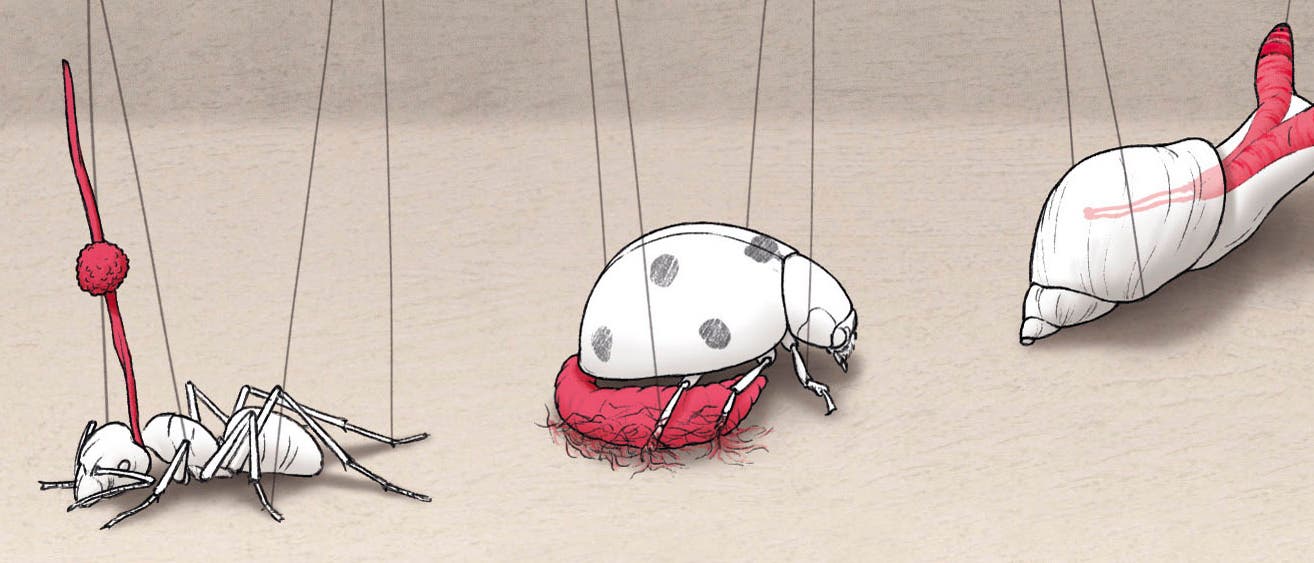Infografik: Fremdgesteuert


Andersen, S. B. et al.: The life of a dead ant: The expression of an adaptive extended phenotype. The American Naturalist 174, 2009
Biron, G. D. et al.: 'Suicide' of crickets harbouring hairworms: A proteomics investigation. Insect molecular biology 15, 2007
Johnson, K. V.-A., Foster, K. R.: Why does the microbiome affect behavior? Nature Reviews Microbiology 16, 2018
Kristensen, T. et al.: The selective advantage of host feminization: a case study of the green crab Carcinus maenas and the parasitic barnacle Sacculina carcini. Marine Biology 159, 2012
Maure, F. et al.: The cost of a bodyguard. Biology Letters 7, 2011
Rao, S. et al.: Pathogen-mediated inhibition of anorexia promotes host survival and transmission . Cell 168, 2017
Thomas, F. et al.: Biochemical and histological changes in the brain of the cricket Nemobius sylvestris infected by the manipulative parasite Paragordius tricuspidatus (Nematomorpha). International Journal for Parasitology 33, 2003
Vyas, A. et al.: Behavioral changes induced by Toxoplasma infection of rodents are highly specific to aversion of cat odors. PNAS 104, 2007
Wesołowska, W., Wesołowski, T.: Do Leucochloridium sporocysts manipulate the behaviour of their snail hosts?. Journal of Zoology 292, 2014
Schreiben Sie uns!
Beitrag schreiben